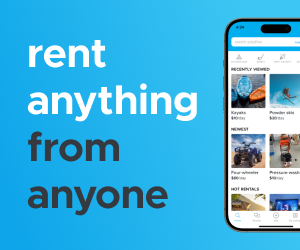Facebook, Instagram, WhatsApp Go Down
Facebook was down for 22 hours yesterday, and its sister apps Instagram, WhatsApp, and Messenger also saw extensive outages. It was unusual in the sense that the four applications are each distinct codebases, but perhaps not suprising as all four share the same massive infrastructure.
The joke is that global worker productivity shoots up whenever Facebook goes down, and you would think that Facebook, Instagram, Whatsapp and Messenger are nothing more than distractions in our increasingly digital lives.
But Facebook has 2.3 billion users. WhatsApp has 1.5 billion users, and in countries like India, Brazil, Mexico and many others, it’s the most popular messaging platform by far. WhatsApp doesn’t trail much further behind with 1.3 billion users. Instagram has one billion users.
So the outage affected a significant number of people. The above tally doesn’t even include the users of apps and web services that adopted Facebook as its login mechanism. For 22 hours, the front doors of those outfits were closed as well.
The Facebook network outage follows outages on Tuesday for Google’s Gmail and YouTube, as well as Verizon.
Are these outages the result of hackers? It’s hard not to speculate. Sure, 90 percent of the time, it’s a server or DNS misconfiguration, someone pushing the wrong button. But the same day Facebook went down, New York issued subpoenas investigating Facebook’s data sharing practices.
Either way, it serves as a wake-up call as to our dependence on these giant, centralized, walled-garden systems for much of what we call the Internet today. It’s certainly while some policymakers are suggesting breaking up these firms — Facebook, Amazon, Apple. Usually, though, government intervention makes things worse, not better.
We don’t have to give up Facebook or Twitter or Instagram. But we should definitely diversify our social network portfolios, as it were. Even better if we could use standards-based applications that allow information to flow freely when we want it to, but protect our privacy otherwise.








2 Responses
[…] the question that persisted in my mind, especially a day after mulling the central role Facebook plays in the lives in 2.3 billion people, is whether social media platforms can do something to stop […]
[…] the question that persisted in my mind, especially a day after mulling the central role Facebook plays in the lives in 2.3 billion people, is whether social media platforms can do something to stop […]